 John had come a long way since the Richardsons had first stepped in as his foster parents, but all his progress led to a dead end. The Richardsons had nothing left—no options, no ideas, just a futureless child and hours of prayer.
John had come a long way since the Richardsons had first stepped in as his foster parents, but all his progress led to a dead end. The Richardsons had nothing left—no options, no ideas, just a futureless child and hours of prayer.
When they first met him, John was a solemn preschooler who didn’t chatter about Paw Patrol or make sputtering truck sound effects like he should. There was more to his lack of communication than the early years of abuse and neglect, or the series of foster care placements he’d shuffled through before coming to MBCH. As if John’s story weren’t complicated enough, he was also autistic and nonverbal. Without language to process so many turbulent changes, the trauma multiplied into cycles of chaos and screaming. The Richardsons could hold him all they liked, but they could never reach him no matter how hard they tried.
But they chose to believe that John was capable of more. The Richardsons committed to the grueling work of learning American Sign Language (ASL). One word at a time, they helped John fill in his world with meaning. As John learned language, the overwhelming overlap of everything separated into distinct points he could name, one by one: applesauce, yellow, need, afraid.
ASL gave John’s life order and structure. For the first time, he could tell someone else how he felt and understand what they said in response. He was happy with his foster parents, the only people who had ever known him. The more words he learned, the more his challenging behaviors calmed into healthier functioning and coping mechanisms that the Richardsons helped him develop. Things were looking up, and the words kept coming—helicopter, sorry, lizard, laugh.
Things were looking so good, in fact, that John seemed ready to transition into an adoptive home. The Richardsons and John’s MBCH case worker began to pray that God would lead them to the right family. But John’s needs were still too vast, too specific. For one reason or another, no couple was an appropriate fit.
The Richardsons couldn’t find an adoptive family, but they kept finding more people who committed to praying for John every day. It had to be possible. When Elijah prayed, the heavens answered rain; when Joshua prayed, the sun itself stopped to listen. Surely the defender of the fatherless would notice the cries of so many of His children and respond.
But no one ever came. Now words like abandoned and impossible circled through the Richardsons’ heads like a refrain. Even as their faith flickered, they continued to pray.
Just when they’d all but given up, they found them—not the perfect family, of course, but the right one. God had equipped the adoptive parents with everything John needed: sufficient time and resources, a supportive community, patience, empathy, and an uncanny ability to understand John’s disposition and help him grow. John’s new adoptive parents even knew sign language! They were the kind of miracle that could only have come from God. In fact, John wouldn’t even have to move houses, because he already lived with them: his new adoptive parents were the Richardsons.
Foster care had always been their calling, and there were a thousand reasons why the logistics of adoption simply wouldn’t work. But one morning when they were gathered with John’s case worker and their support team to pray, every person in the room had the same thought as they opened their eyes after the last amen. The Holy Spirit had given unity of heart to the entire group, confirming what the Richardsons had started to wonder. They’d loved John like their own son for a long time now; they were the answer that God was providing.
These days, the Richardsons work relentlessly to support John’s counseling and education. MBCH and the prayer team continue to stick close, helping the family with day-to-day miracles. And John is still building his vocabulary. He understands the word faithfulness better than a lot of preachers do, because God’s promises have become his home.


